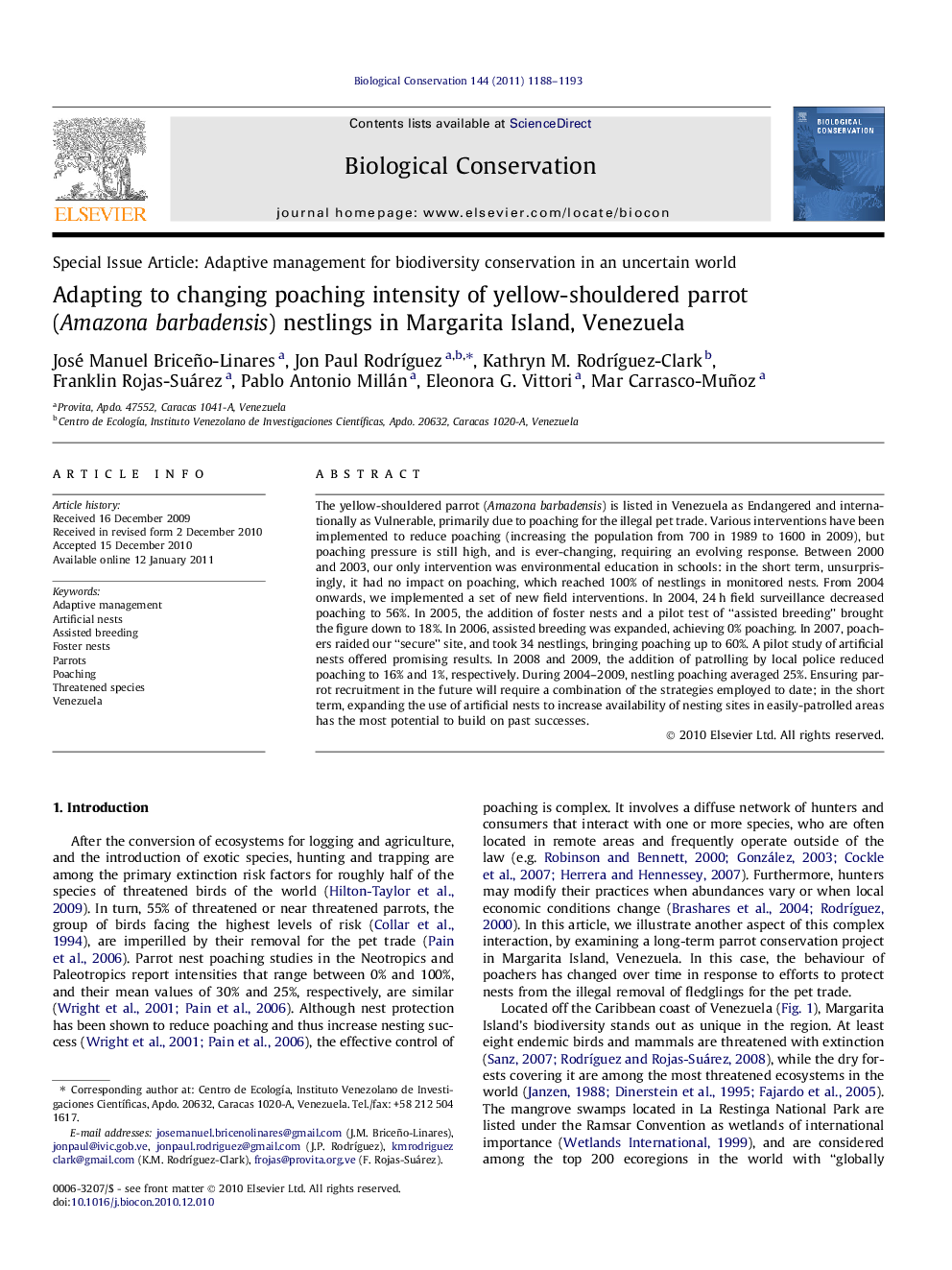| Article ID | Journal | Published Year | Pages | File Type |
|---|---|---|---|---|
| 4385600 | Biological Conservation | 2011 | 6 Pages |
The yellow-shouldered parrot (Amazona barbadensis) is listed in Venezuela as Endangered and internationally as Vulnerable, primarily due to poaching for the illegal pet trade. Various interventions have been implemented to reduce poaching (increasing the population from 700 in 1989 to 1600 in 2009), but poaching pressure is still high, and is ever-changing, requiring an evolving response. Between 2000 and 2003, our only intervention was environmental education in schools: in the short term, unsurprisingly, it had no impact on poaching, which reached 100% of nestlings in monitored nests. From 2004 onwards, we implemented a set of new field interventions. In 2004, 24 h field surveillance decreased poaching to 56%. In 2005, the addition of foster nests and a pilot test of “assisted breeding” brought the figure down to 18%. In 2006, assisted breeding was expanded, achieving 0% poaching. In 2007, poachers raided our “secure” site, and took 34 nestlings, bringing poaching up to 60%. A pilot study of artificial nests offered promising results. In 2008 and 2009, the addition of patrolling by local police reduced poaching to 16% and 1%, respectively. During 2004–2009, nestling poaching averaged 25%. Ensuring parrot recruitment in the future will require a combination of the strategies employed to date; in the short term, expanding the use of artificial nests to increase availability of nesting sites in easily-patrolled areas has the most potential to build on past successes.
